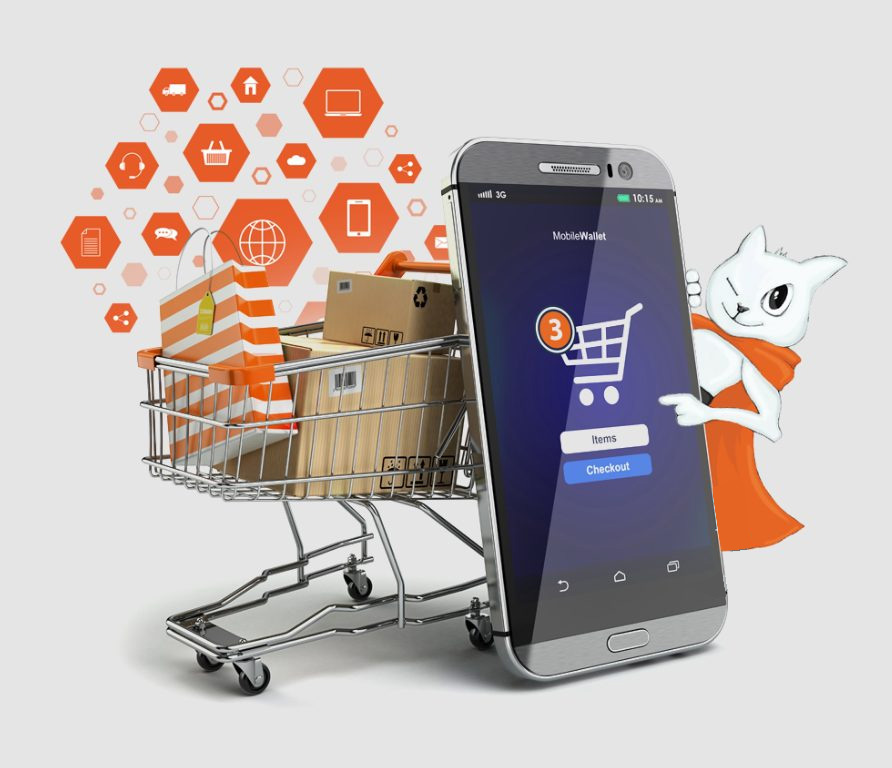21st century eCommerce
What is Omnichannel?
Omnichannel is a completely new perspective on multichannel sales, with the main objective of ensuring consistent communication with the consumer through every channel. This process is significant as the worlds of offline and online are beginning to overlap all the more, consumers are expecting identical experiences regardless of where they are.What is more, while the eCommerce market is the fastest growing branch of trade globally, it is the implementation of the Omnichannel strategy which is the greatest challenge that stands before every company thinking of developing their sales. Why do we speak about Omnichannel? Because online shopping has become something so common that retail in 2020 cannot exist without it. An ideal example is clothing sales which have reached a value of over 70% online.


-

Presentation of product availability in a fixed store
- Complete control over the sales process
- Consumer clearly sees a trusted partner in you
- Ease of placing orders
- Smooth process of completing the order
-

Possibility of collection and return in fixed stores (click & collect)
- Collection of the order at a fixed store becomes the ideal opportunity to sell additional products to the consumer
- Enabling the consumer to return a product at a fixed store brings us closer to the consumer and their needs
- Frequently chosen method of receiving and returning of orders
- Solution to ROPO (Research online, purchase offline)
-

Delivery of products through a shipping process
- A variety of delivery options facilitates the choice most convenient for the consumer
- We also build brand credibility
-

Complete offer
- Building an image of a trustworthy brand
- Expanding the group of regular customers
- Avoiding the option of filling orders without secured stock
-

Adapting to mobile
- Mobile activity in e-stores already constitutes over 20%
- All the more people are finalizing their purchases using mobile devices
- M-commerce is the future of online sales
25% is the average increase in revenue arising from implementing an Omnichannel strategy25% is the average increase in revenue arising from implementing an Omnichannel strategy

See the effects of implementing Omnichannel in the Quiosque fashion brand
-
500%increase in revenue
-
150%increase in conversion
-
10%increase in the value of the shopping cart
-
50%more website views
-
20%extended session duration
Why is it so difficult to implement Omnichannel in an organization?
Change in thinking about consumers
Previously, online and offline consumers were served separate marketing messages at different touch points. Omnichannel unifies all sales channels and integrates promotional activities with consistent communication across advertising, websites, e-mail marketing, social media, blogs, etc.
Unified online and offline communications synchronized with inventory, dramatically increases consumer satisfaction especially when the ability to get helpful feedback through social media, messengers, e-mails and by phone is available. This is crucial for improving short and long-term relationships as it dramatically increases the number and value of transactions, consistently delivering proven revenue increases.
Investment
Not only an investment in technology, but also training staff in customer service, call center, etc. Such measures consume enormous financial resources, which translates to many companies resisting as long as they can, often implementing unduly simplified Omnichannel mechanisms.
Strategy
Implementation of the Omnichannel strategy carries the necessity of also changing the strategy of the entire company due to the need to integrate many of their elements.
A well implemented Omnichannel strategy
results in real profits for your company
results in real profits for your company
Write to us nowand learn how to start selling more.

Contact
Get in touch
Contact
Get in touch
Do you want to improve your business?

Contact:
info@fastwhitecat.com
Contact details

Fast White Cat S.A.
ul. Fabryczna 6, 53-609 Wrocław
info@fastwhitecat.com
Tax identification number: 8971779243
REGON: 021761553
Data Protection Officer

Monika Foryt
Data Protection Officer
iod@fastwhitecat.com
Katarzyna Sekuła
Deputy Data Protection Officer
iod@fastwhitecat.com




